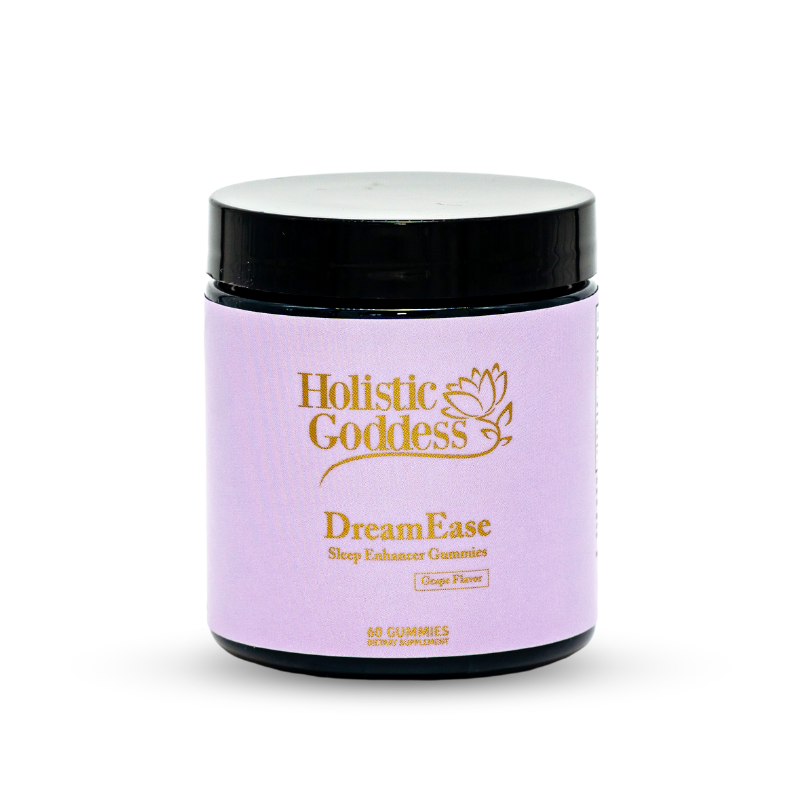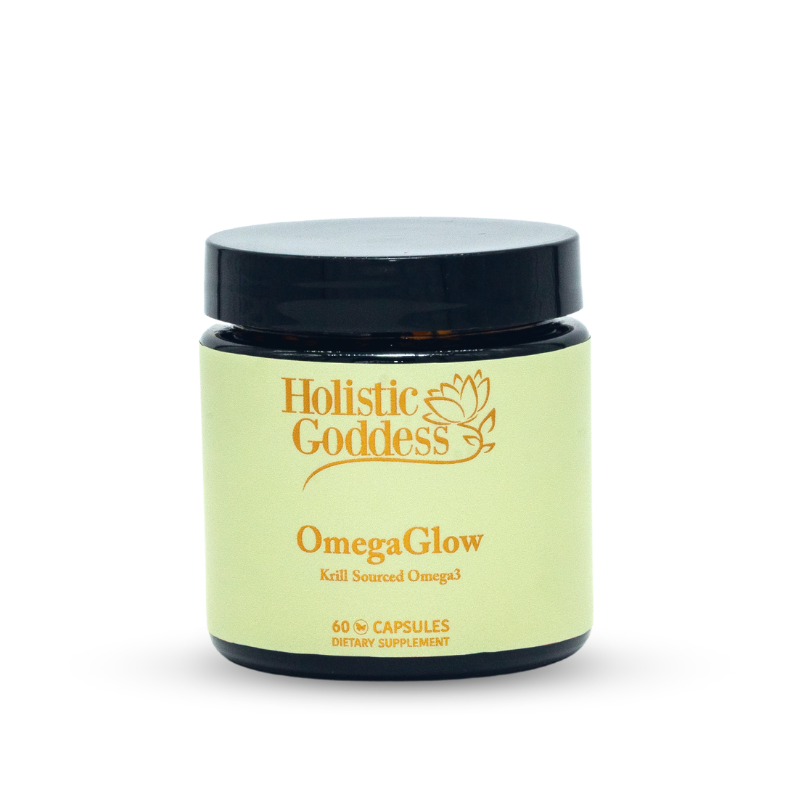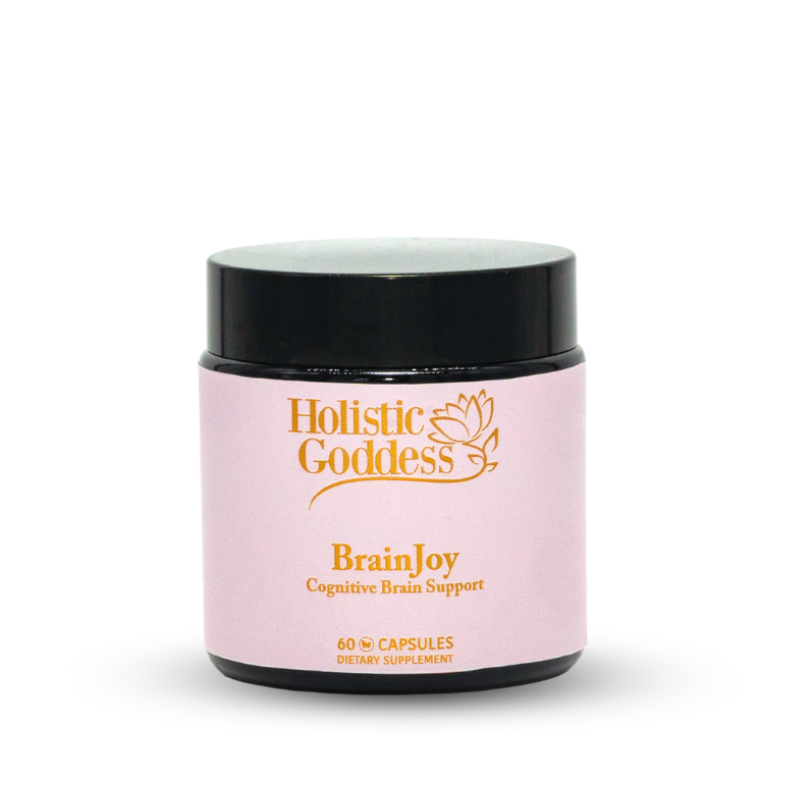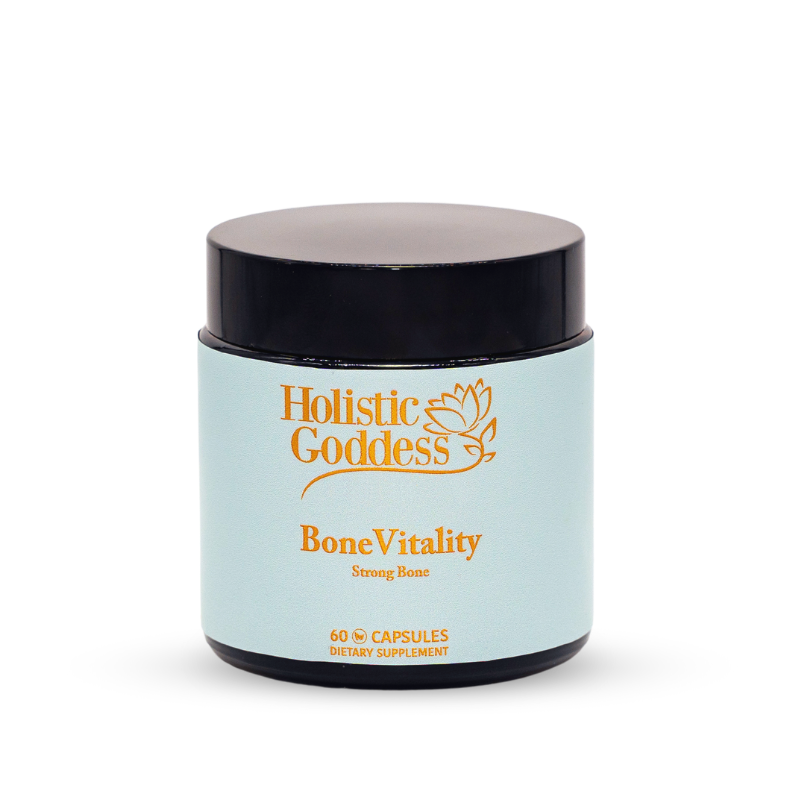BrainJoy
Cognitive Brain Support
BrainJoy
Cognitive Brain Support
WHY YOU'LL LOVE IT
✦ Maintain cognitive health for mental clarity with Lion's Mane, Turmeric, and Lemon Balm's gentle support.
✦ Shield your brain from stress-related factors with the harmonious combination of Panax Ginseng, Ashwagandha, and Lemon Balm.
✦ Support resilient and healthy brain function with Ginkgo Biloba Leaf, Turmeric, and Lion's Mane.
Size: 30 Servings
Enter a state of readiness with BrainJoy. This blend combines the cognitive-supporting nature of Lion's Mane, the memory-sustaining attributes of Turmeric, and the calming essence of Lemon Balm. Together, they provide what you need for healthy brain cells and assist in supporting the brain from stress factors that can contribute to degeneration.
WHY YOU'LL LOVE IT
✦ Maintain cognitive health for mental clarity with Lion's Mane, Turmeric, and Lemon Balm's gentle support.
✦ Shield your brain from stress-related factors with the harmonious combination of Panax Ginseng, Ashwagandha, and Lemon Balm.
✦ Support resilient and healthy brain function with Ginkgo Biloba Leaf, Turmeric, and Lion's Mane.
✦ 30 Servings

BrainJoy
Cognitive Brain Support
PrimeAura
Ultimate Multivitamin
WHY YOU'LL LOVE IT
✦ Maintain cognitive health for mental clarity with Lion's Mane, Turmeric, and Lemon Balm's gentle support.
✦ Shield your brain from stress-related factors with the harmonious combination of Panax Ginseng, Ashwagandha, and Lemon Balm.
✦ Support resilient and healthy brain function with Ginkgo Biloba Leaf, Turmeric, and Lion's Mane.
✦ 30 Servings
PrimeAura Multivitamin, a blend of 19 essential vitamins and minerals thoughtfully tailored for your daily well-being, fuels the subtle engine behind each day's activities and decisions, helping you embrace each moment with energy and confidence.
WHY YOU'LL LOVE IT
✦ A blend of 19 vitamins and minerals harmoniously contributes to your daily routine, helping maintain nutritional balance.
✦ Thoughtfully designed to aid the unique health needs of women, maintaining brain function, energy, and reproductive wellness.
✦ With a wide spectrum of nutrients, including Vitamin D and Iron, PrimeAura contributes to various aspects of overall health.
Size: 30 Servings

PrimeAura
Ultimate Multivitamin

PrimeAura Multivitamin, a blend of 19 essential vitamins and minerals thoughtfully tailored for your daily well-being, fuels the subtle engine behind each day's activities and decisions, helping you embrace each moment with energy and confidence.
WHY YOU'LL LOVE IT
✦ A blend of 19 vitamins and minerals harmoniously contributes to your daily routine, helping maintain nutritional balance.
✦ Thoughtfully designed to aid the unique health needs of women, maintaining brain function, energy, and reproductive wellness.
✦ With a wide spectrum of nutrients, including Vitamin D and Iron, PrimeAura contributes to various aspects of overall health.
Size: 30 Servings

PrimeAura
A Mindful Formulation For Radiant Results
Discover the Goodness Inside
Vitamin A
Supports vision, reproduction, and the well-being of the heart, lungs, and immune system.
Vitamin C
Aids the immune system, helps with healing processes, offers antioxidant benefits, and protects against free radicals. It's not naturally produced by the body, so it must be obtained through diet or supplementation.
Vitamin D
Known as the "sunshine vitamin," it helps the body absorb and utilize calcium, reduces inflammation, and plays a role in controlling infections. For many, it's best to supplement, as It can be challenging to obtain enough through food and sunlight alone.
View More
Vitamin E: Beneficial for vision, reproduction, blood health, brain function, and offers antioxidant properties.
Thiamin (Vitamin B1): Helps convert food into energy and supports a healthy nervous system.
Riboflavin (Vitamin B2): Supports cell growth, energy production, and the breakdown of fats, steroids, and medications.
Niacin (Vitamin B3): Improves circulation and may help suppress inflammation.
Vitamin B6: Important for normal brain development and maintaining a healthy immune system.
Folate (Vitamin B9): Better absorbed as a supplement than a food source, it assists in DNA and RNA formation, is involved in protein metabolism, and is needed for healthy blood cell production.
Vitamin B12: A vital water-soluble vitamin absorbed in the stomach before distributing to the blood and cells. Supports healthy red blood cells, brain function, and could boost energy levels.
Biotin (Vitamin H): Aids in metabolizing carbohydrates, fats, and amino acids, and strengthens hair and nails.
Pantothenic Acid (Vitamin B5): Critical for manufacturing red blood cells, sex hormones, and stress hormones in the adrenals, and plays a role in maintaining a healthy digestive tract.
Choline: Regulates memory, mood, and muscle control, and forms membranes surrounding body cells.
Iron: Essential for hormone production, including hemoglobin, which carries oxygen from the lungs throughout the body.
Magnesium: Important for various bodily functions, including immune support.
Zinc: Supports the immune system, metabolism, wound healing, and fights bacteria and viruses.
Selenium: Aids the immune system, thyroid function, acts as an antioxidant, supports heart health, and reduces inflammation.
Copper: Essential for energy production, connective tissues, blood vessels, nervous and immune systems, gene activation, and brain development.
Inositol: Often linked with B-vitamins, it plays a role in helping the body process fats and supports healthy insulin function.
View Supplement Facts
Flourish and Shine From Within
How to Use
Take two capsules of PrimeAura dietary supplement daily, ideally with a meal, and embrace the intent of self-care.
Your body thanks you.
Safe for pregnant and nursing mothers.
Pairs Well With DreamEase
Begin your day with PrimeAura's multivitamin blend and transition to evening with DreamEase. This pairing offers a balanced daily routine, complementing morning vitality with nighttime relaxation. A harmonious duo for round-the-clock care.
Formulated With Intent
Crafting the ideal multivitamin goes beyond mere scientific precision. It's a meticulous endeavor that mirrors the essence of womanhood.
Each of the 18 selected vitamins underscores our commitment, addressing distinct needs.
It's not just about filling gaps, but creating connections — ensuring every facet of feminine health is recognized and nurtured.
This journey embodies a deep understanding, a harmony between nature and need, celebrating the intrinsic value of comprehensive well-being.
Customer Reviews
These statements have not been evaluated by the Food & Drug Administration. This product is not intended to diagnose, treat, cure, or prevent any disease.
Allergen Warning: This product is produced in a facility that may also process ingredients containing milk, eggs, fish, shellfish, tree nuts, peanuts, wheat, and soybeans.
Intended for use by adults 18 years of age and over. Do not use if the seal under the cap is broken or missing.





